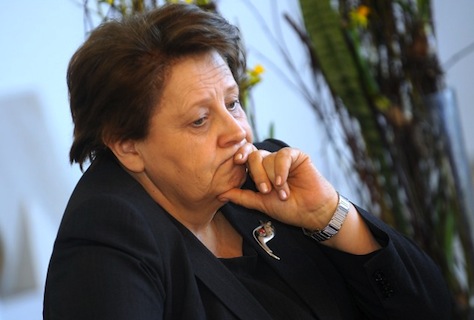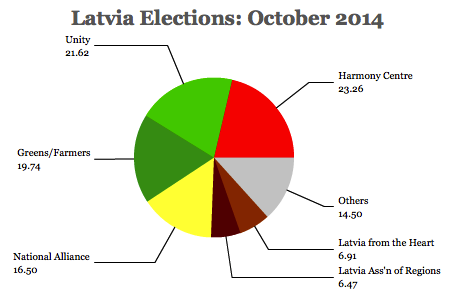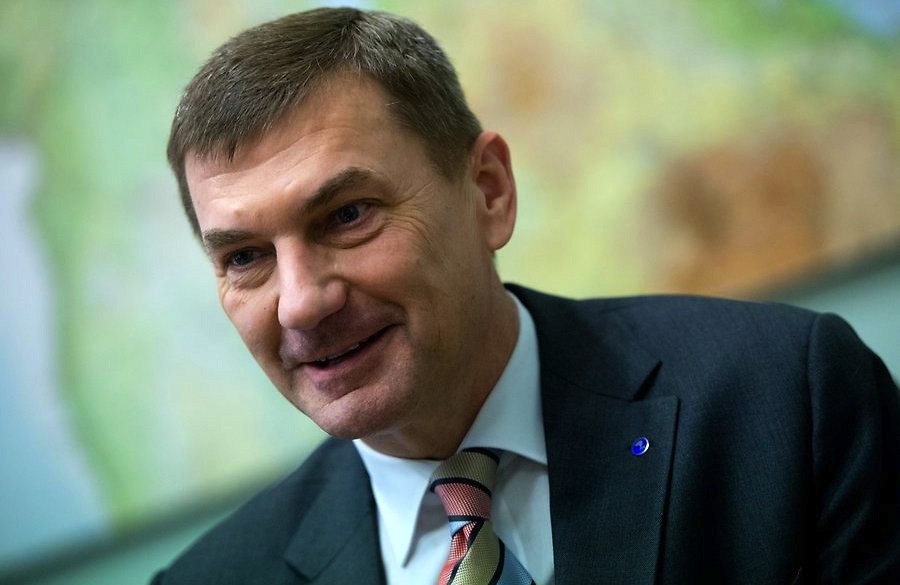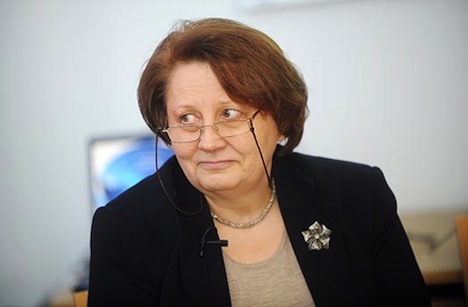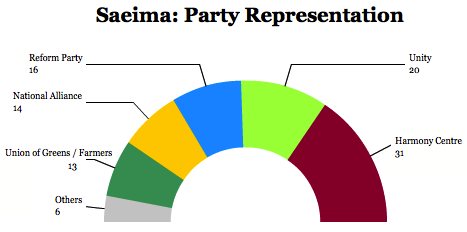Basically, Latvia’s election turned out nearly as everyone imagined it would. Latvia has had a center-right government since its independence from the Soviet Union in 1991, and it will do so again. ![]()
A coalition of center-right parties, led by prime minister Laimdota Straujuma, will continue to govern Latvia, continuing the country’s cautious approach to budget discipline. Straujuma, a former agriculture minister, known as a tough negotiator among EU Circles, has won her first electoral mandate since becoming prime minister in January, and she will hope that her country’s low debt and higher economic growth in the years ahead can result in lower unemployment. Even as Russia shakes its sable against NATO, rattling nerves in all three Baltic state, there’s reason to believe that the worst of Latvia’s difficult past half-decade is over.
* * * * *
RELATED: Latvian right hopes to ride Russia threat to reelection
* * * * *
Though it endured a painful internal devaluation and a series of budget reforms over the last five years, Latvia entered the eurozone in January, and Straujuma’s predecessor, Valdis Dombrovsksis, who resigned late last year after the freak collapse of a supermarket roof near Riga, the capital, is set to become the European Commission’s next vice president for ‘the euro and social dialogue,’ making him one of the most important voices on setting EU economic and monetary policy over the next five years.
The opposition Sociāldemokrātiskā Partija ‘Saskaņa’ (Social Democratic Party “Harmony,” which previously contested Latvian elections as the wider ‘Harmony Centre’ alliance), though it won the greatest number of seats in the Saeima, Latvia’s parliament, will be unlikely to find coalition partners in light of its role as the party of ethnic Russian interests and its cozy ties to Moscow and Russian president Vladimir Putin.
Having lost seven seats from its pre-election total, the result will certainly be something of a setback for its leader, Riga mayor Nils Ušakovs, who had tried to emphasize the party’s social democratic nature, even as he offered sympathetic words with respect to Russia’s aggression in Ukraine. It follows a similarly poor showing in the May European parliamentary elections.
Continue reading Latvia election results: center-right coalition set for reelection
